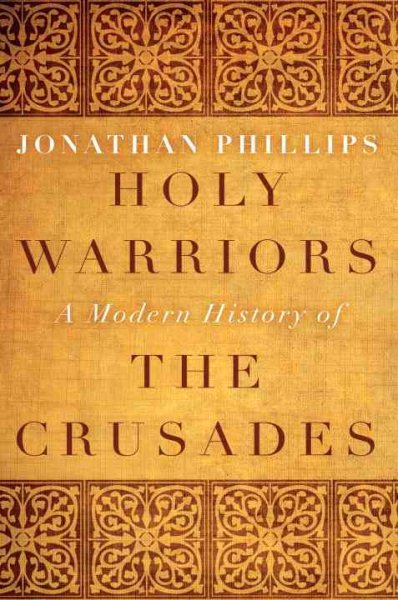A fresh, no-nonsense take on the causes, human cost and continued relevance of the medieval Crusades. Both religious belief and endemic violence characterized Europe in 1095 when Pope Urban II called for a "just war" against the alarming rise of the Muslims. Employing inflated language about sacrifice and the promise of celestial rewards, the pope gathered an army of 60,000 "Christian soldiers" to regain Jerusalem. They succeeded, but Phillips (Crusading History/Univ. of London; The Second Crusade: Extending the Frontiers of Christendom, 2007, etc.) shows how ensuing crusades failed miserably, despite the zeal of the faithful. The Second, initiated by Pope Eugenius III and Bernard of Clairvaux, ended in a humiliating retreat from Damascus; the launch of a Third Crusade by King Richard the Lionheart was in response to Saladin's retaking of Jerusalem; Pope Innocent III's call for a Fourth Crusade, led by the Venetians, ended in the shocking sack of Constantinople in 1204; Frederick II's abysmal Fifth Crusade was thwarted by the Egyptians, yet he eventually finagled his way into Jerusalem by sheer diplomacy; pious King Louis IX's determined last crusades in the Holy Land encountered significant Muslim resistance but gained him sainthood. Along the way there were tertiary struggles against the heretics, such as Innocent III's rallying against the Cathars, the rise of the Inquisition, led by the Dominican friars, and Ferdinand and Isabella's eventual regaining of the Iberian Peninsula from the Moors. Phillips wisely incorporates Columbus's mandate to spread the Good Word across the seas as another significant crusade. In two terrific concluding chapters, the author traces the resurgence of the crusading metaphor into modern times, largely thanks to Sir Walter Scott and the Romantics, and considers the incendiary war language of today, as jihad and as used by President Bush in asserting a "moral right. A straightforward, pertinent study replete with passionate personages both Christian and Muslim.
Check Catalog


No comments:
Post a Comment